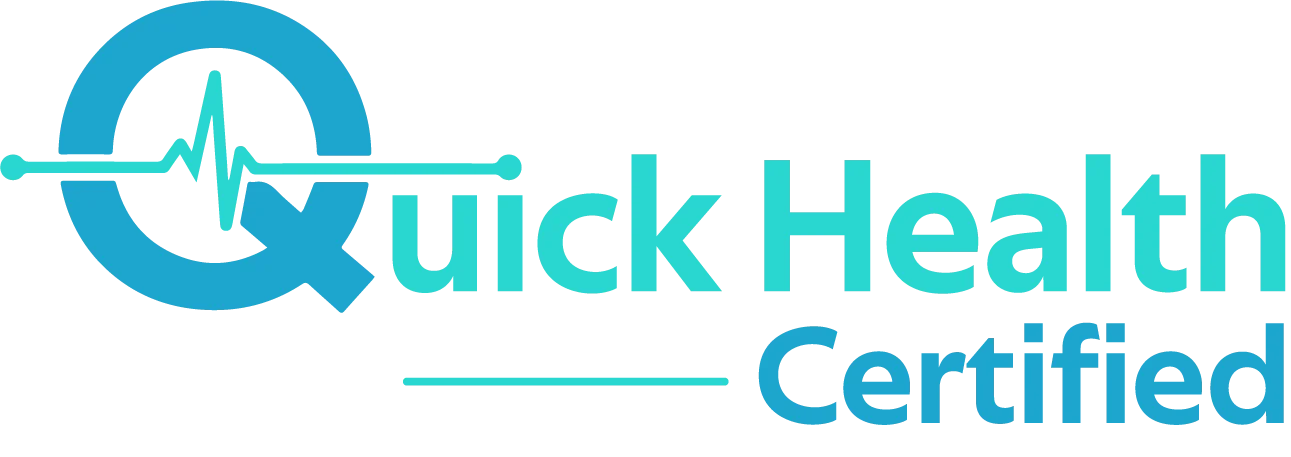Mon-Fri 9am to 6pm CST
by John Doe
31-July-2024

Key Duties of a Pharmacy Technician You MUST Know
As a pharmacy technician, you’ll find yourself at the heart of a typical pharmacy’s operations.
You’ll be the one interacting with patients, helping them navigate their prescriptions, and making sure everything is in order.
But what exactly does a pharmacy technician do day-to-day? What are the duties of a pharmacy technician?
From managing medications to processing insurance claims, your role is as diverse as it is crucial.
In this post, we'll take a closer look at what the job entails, jot down the key skills for a pharmacy tech, and get insights into the pharmacy technician responsibilities and daily activities that come with the role
Pharmacy Technician: Role Description
As the name implies, a pharmacy technician mostly works in places like retail pharmacies or hospitals.
In both of these settings, you’ll be working alongside a licensed pharmacist.
While your tasks might be a little different depending on where you work, it’s important to understand all the key duties of a pharmacy technician, no matter the type of workplace.
Keep reading to learn about what are the responsibilities of a pharmacy tech, and what they encounter on a day-to-day basis:
11 Crucial Duties of a Pharmacy Tech
As a pharmacy technician, you’ll be busy doing various tasks that help keep the pharmacy running smoothly.
And depending on where you work—whether it's a hospital, retail pharmacy, or local drugstore—your duties might differ a little, but the core ones will remain the same.
Here’s a countdown of some important ones:
-
Preparing and dispensing medication
As a pharmacy tech, one of the most basic yet the important role for a pharmacy technician is preparing medications for patients.
This means choosing the right medication, the correct amount, and packaging it in a way that’s easy for patients to use.
You’ll need to count pills, put them in bottles, and make sure each bottle has the right label with instructions on how to use the medication.
Sometimes, however, pharmacy techs also mix medications, like creams or liquids, if they’re needed in a different form.
-
Receiving Prescription Requests
The 2nd most important role for a pharmacy technician entails receiving prescription requests, which usually come from doctors.
You’ll need to check if all the information on the prescription is correct, like the patient’s name, the doctor’s details, and any special instruction(s).
After confirming everything is right, you'll enter the prescription into the pharmacy’s system so it can be filled.
-
Pricing the prescriptions
Another key job is figuring out how much a prescription will cost for the patient.
You might need to check the price of the medicine, run the prescription through the patient’s insurance, and see if the patient qualifies for discounts.
If there are any issues, you might have to work out a solution with the pharmacist.
-
Checking for any drug interactions
Another key responsibility of a pharmacy technician is to check that any medicines the patients are taking won’t have bad interactions with each other.
This is especially important for individuals who take several medications.
Checking for any potential drug interaction is a must for every pharmacy tech to make sure patients get the right medication at the right dose.
-
Communicating with patients
As a pharmacy tech, you’ll be in constant contact with patients, day-in day-out, so good communication is key.
You’ll help patients with questions about their medications, explain how to take them, and assist with purchasing prescriptions.
If a patient has a complex medical question, you’ll direct them to the pharmacist, but most of the time, you’ll be the first point of contact for them.
-
Handling Inventory
Managing pharmacy inventory is also an important task for you as a pharmacy technician.
This task involves monitoring the stock of medications by checking both the physical inventory and electronic records.
You’ll be responsible for ordering medications that are running low and ensuring certain medications are available when needed for patients.
Apart from that, pharmacy techs also check for expired medications and remove them from the stock.
-
Processing Insurance Claims
When patients use insurance to pay for their prescriptions, you’ll be in charge of processing their insurance claims.
This involves checking the patient’s insurance details, contacting the insurance company to confirm coverage, processing the prescription through the insurance, and updating the insurance information in the pharmacy system.
If a prescription is rejected by the insurance, the technician may need to work with the pharmacist and doctor to find a solution, such as finding discounts for the patient, or if nothing else, suggest an alternative medication.
-
Proper Storing of medications
Ensuring the proper storage of medications is also the job of a pharmacy tech.
These tasks include:
- keeping certain medications away from sunlight
- performing regular checks to make sure storage conditions are maintained
- storing prescriptions in a proper manner to ensure they're safe for use and that they maintain the predefined standards – to name a few.
-
Correctly Packaging and Labeling Medications
Another key responsibility of a pharmacy technician is to accurately label and package prescription bottles and containers.
This includes things like entering the correct information and instructions on the label, printing it, and attaching it to the right bottle or container.
In addition to individual prescriptions, pharma techs may also need to prepare larger packages containing multiple medications for shipment, making sure they’re properly labeled.
It’s essential to verify that each label includes the correct medication name, dosage, quantity, and both manufacturing, and expiry dates.
-
Assisting with administrative tasks
Pharmacy technicians also help with various office duties, such as organizing paperwork, updating patient records, scheduling appointments, and handling phone calls.
They support the administrative side of the pharmacy ensuring there’s no hinderance to the overall functioning of the pharmacy
-
Training the new staff
When pharmacy technicians spend some time in the field, they may get the responsibility to train new staff, such as technicians or assistants.
This training includes teaching them how to process insurance claims, label medications, order inventory, and interacting with customers.
Some pharmacy technicians may also assist in the hiring process by reviewing resumes, participating in interviews, and evaluating a candidates' qualifications and expertise.
So, whether you’re training in-person or online from programs like Pharmacy Technician Bootcamp, these core skills will definitely be part of your coursework.

Pharmacy technician skills that are a must have
As you can see, the role of a pharmacy technician in healthcare involves more than you might think.
That being said, the below-given skills are a must if you’re serious about becoming a pharmacy technician.
Let’s take a look at some indispensable ones you’ll need day in day-out as a pharmacy tech:
-
Communication
Pharmacy technicians constantly communicate with pharmacists and doctors when taking prescription orders.
They also need to listen carefully to patients’ concerns and questions and, when necessary, refer them to the pharmacist for further assistance.
So, this is one skill expected of every individual wanting to become a pharma tech.
-
Problem-solving
Handling conflicts is something pharmacy technicians must be good at.
Whether it’s between patients, insurance providers, or colleagues, they need the maturity and critical thinking skills to resolve issues in a calm and efficient manner.
-
Mathematical skills
Filling in prescriptions and preparing medications often require the ability to accurately calculate doses and measurements.
So, it’s natural that a pharma tech should have a strong grasp of basic math for these tasks.
-
Multi-tasking
As we’ve seen above, pharma techs are often responsible for a variety of tasks, such as stocking shelves, managing inventory, and assisting customers.
They must be able to juggle multiple duties while keeping an organized workflow.
-
Attention to detail
Even small mistakes with medication types, dosages, or interactions can have serious consequences in this line of work.
So, being an individual with a focus on small details is a quite valuable asset in this healthcare field.

Wrapping up
So, now that you have a better grasp of the duties of pharmacy technicians, are you up to the challenge of taking on this profession? And why not, apart from being a highly sough-after profession in the coming decade, the salary potential for pharmacy techs is indeed something to deem it a rewarding career.
So, if you’re ready to begin your journey into this field, platforms like Quick Health Certified are your best bet for finding quick, online training + certifications like Pharmacy Technician Bootcamp.
Enroll today and take the next step in your journey!
FAQs
- Preparing patient prescriptions
- Interacting with customers
- Checking for any drug interactions
- Managing pharmacy inventory
- Processing insurance claims
Let's Meet
Please provide us your email address and we'll connect you with a member of our admission team.
Recent Posts
Allied Health in the Rearview Mirror:
What have we Learned over past 10 Years?
30-Jan-2024
Allied Health in the Rearview Mirror:
What have we Learned over past 10 Years?
30-Jan-2024
Allied Health in the Rearview Mirror:
What have we Learned over past 10 Years?
30-Jan-2024
Allied Health in the Rearview Mirror:
What have we Learned over past 10 Years?
30-Jan-2024
Allied Health in the Rearview Mirror:
What have we Learned over past 10 Years?
30-Jan-2024



 Chat
Chat